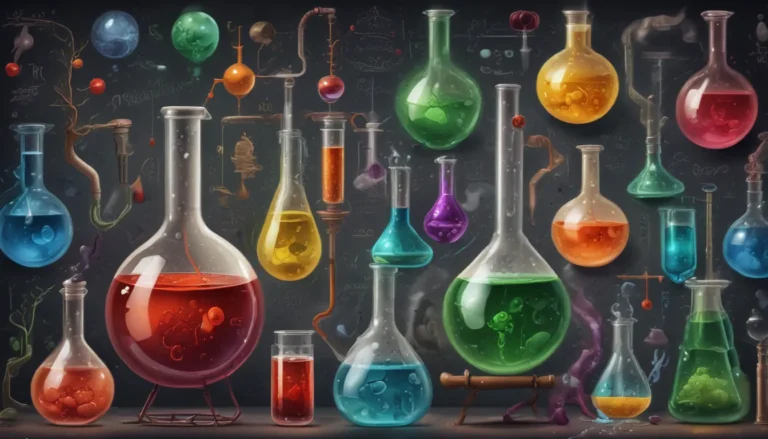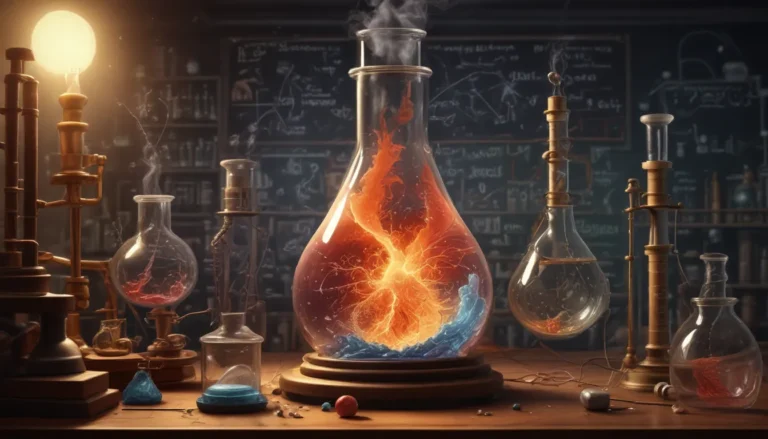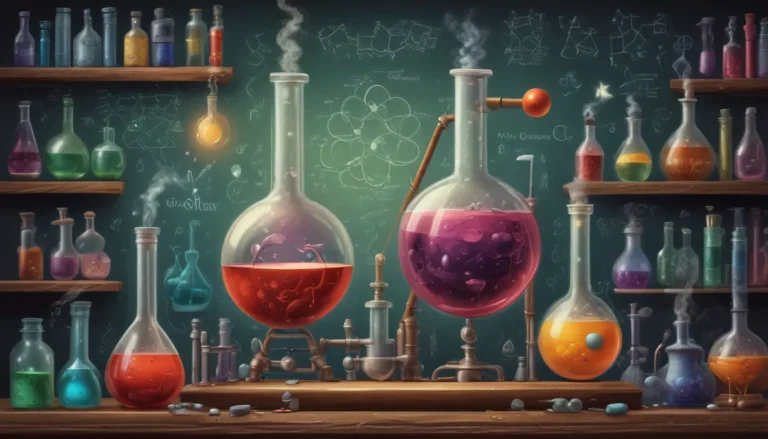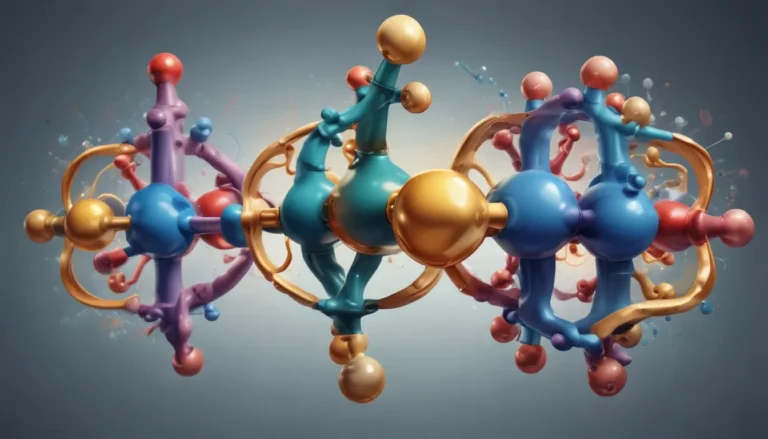A Note About Images: The images used in our articles are for illustration purposes only and may not exactly match the content. They are meant to engage readers, but the text should be relied upon for accurate information.
Welcome to the fascinating world of electrons, the tiny yet mighty particles that shape the world of chemistry. These subatomic particles hold the key to understanding the behavior of atoms, the formation of chemical bonds, and the functioning of modern technology. In this article, we will delve into 14 unbelievable facts about electrons that will deepen your appreciation for these fundamental particles and their role in our daily lives.
Unveiling the Extraordinary Properties of Electrons
Electrons: The Negatively Charged Wonders
- Every electron carries a precise negative charge of -1.602 x 10-19 coulombs.
- This negative charge is equal in magnitude but opposite in sign to the positive charge of protons.
Embracing Wave-Particle Duality
- According to quantum mechanics, electrons can behave as both particles and waves.
- They can exist as discreet packets of energy known as particles, while also exhibiting wave-like characteristics such as interference and diffraction.
Navigating Energy Levels in Atoms
- Electrons in an atom occupy specific energy levels or orbitals around the nucleus.
- These energy levels determine the electron’s distance from the nucleus and its overall energy state.
The Dance of Electrons in Energy Levels
- Electrons can absorb or release energy to move between different energy levels.
- This phenomenon is responsible for the emission and absorption of light in atoms, leading to colorful displays in neon lights and fireworks.
Unraveling Electron Clouds
- Due to their wave-like nature, electrons can exist in multiple positions or orbitals simultaneously.
- This concept, known as electron cloud or orbital, represents the probability of finding an electron in a specific region around the nucleus.
The Crucial Role of Electrons in Chemistry
Guardians of Chemical Properties
- The arrangement and behavior of electrons in an atom dictate its chemical properties.
- The bonding and interactions between atoms are a result of the sharing, transfer, or redistribution of electrons.
Powering Electrical Conductivity
- Free electrons in conductive materials, such as metals, can move freely and conduct electric current.
- The flow of electrons forms the basis for the operation of electronic devices and electrical circuits.
Accelerating Electrons to New Heights
- Electrons can be accelerated to high velocities using electric fields.
- This principle is utilized in electron microscopes, particle accelerators, and cathode ray tubes.
The Mystique of Electron Spin
- Spin is an intrinsic property of electrons that gives rise to their magnetic properties.
- Electrons can have either an “up” or “down” spin, playing a crucial role in magnetic interactions.
Quantum Tunneling: The Electron Phenomenon
- Electrons can exhibit quantum tunneling, passing through barriers that would be impenetrable to classical particles.
- This effect is utilized in scanning tunneling microscopes and flash memory devices.
A Glimpse into the Mysteries of Electrons
Embracing the Lightness of Being
- Compared to protons and neutrons, electrons have an incredibly small mass, approximately 2,000 times smaller than that of a proton.
Roaming Beyond Atoms
- While primarily associated with atoms, electrons can also exist as free electrons in various environments.
- They can be found in plasma or in the vicinity of highly charged particles.
Encompassing Magnetic Fields
- When electrons move, they generate a magnetic field around them.
- This phenomenon forms the basis for electromagnets used in applications from MRI machines to industrial machinery.
The Backbone of Electronics
- Without electrons, the world of electronics would cease to exist.
- From transistors and diodes to integrated circuits and computers, electrons are essential for modern technology.
Embracing the Marvels of Electrons
As we uncover these 14 unbelievable facts about electrons, we gain a deeper appreciation for their incredible properties and behaviors. The impact of electrons extends far beyond the microscopic world, shaping the very fabric of our technological advancements and daily experiences. As we continue our journey into the mysteries of the universe, electrons will remain a fundamental piece of the intricate puzzle we strive to unravel.
Conclusion: Celebrating the Wonders of Electrons
Electrons stand as captivating particles that hold the key to understanding the world of chemistry. From their role in atoms and molecules to their impact on chemical reactions, electrons shape the properties and interactions of matter. The 14 unbelievable facts about electrons shared in this article offer a glimpse into their remarkable nature and the profound influence they have on our lives.
FAQs: Exploring Further Insights into Electrons
- What is an electron?
-
An electron is a subatomic particle with a negative charge that orbits the nucleus of an atom.
-
How do electrons participate in chemical reactions?
-
During chemical reactions, electrons can be shared, transferred, or rearranged between atoms, leading to the formation or breaking of chemical bonds.
-
Can electrons exist independently?
-
No, electrons are always found in association with an atom or in free electron pairs. They cannot exist independently in isolation.
-
Are electrons smaller than protons and neutrons?
-
Yes, electrons are significantly smaller than protons and neutrons, with a thousand times less mass compared to these particles.
-
Can electrons tunnel through barriers?
- Yes, electrons can exhibit quantum tunneling, passing through barriers that would be impenetrable to classical particles.
An Ongoing Journey into the Electrifying World of Electrons
The exploration of electrons unveils a realm of endless fascination and discovery. From electron shells to electron clouds, from magnetic properties to conductive abilities, electrons offer a captivating glimpse into the intricate workings of the universe. As we continue to unravel the mysteries of chemistry and technology, let the wonders of electrons spark your curiosity and imagination, guiding you on an awe-inspiring journey through the boundless realms of science.






